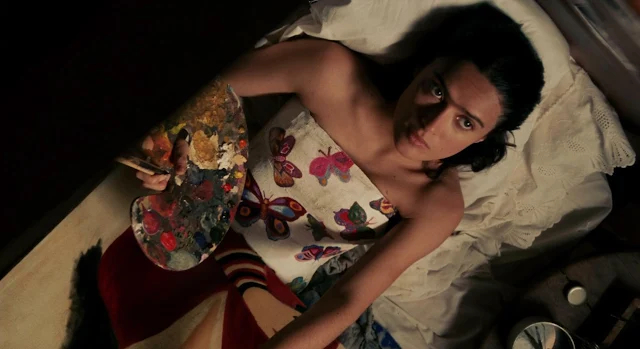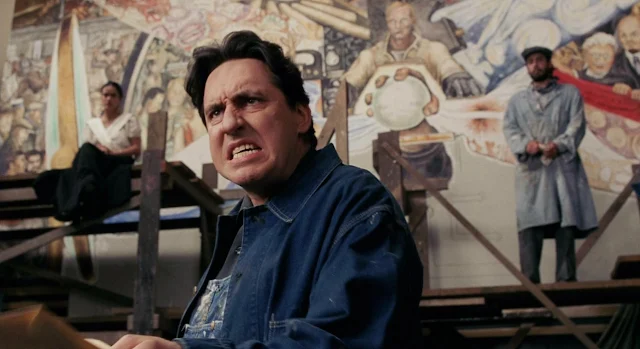
Frida (Julie Taymor, 2002)
Cast: Salma Hayek, Alfred Molina, Mia Maestro, Diego Luna, Valeria Golino, Roger Rees, Ashley Judd, Antonio Banderas, Edward Norton, Geoffrey Rush. Screenplay: Clancy Sigal, Diane Lake, Gregory Nava, Anna Thomas, based on a book by Hayden Herrera. Cinematography: Rodrigo Prieto. Production design: Felipe Fernández del Paso. Film editing: Françoise Bonnot. Music: Elliot Goldenthal.
I usually don't like biopics, with their lurches back and forth between trauma and triumph and their subordination of fact to drama. But I admired Julie Taymor's attempt to integrate Frida Kahlo's life with her work, or really to interpret the latter through the former. I think Taymor falls into the inevitable trap of spending more time on her subject's love life than on her actual work, but Salma Hayek and Alfred Molina are so skillful in displaying the passion and volatility of the film's versions of Frida and Diego Rivera that I can forgive the emphasis on that relationship. Taymor and the screenwriters are less successful in integrating the political aspect of their lives, with its culmination in Frida's affair with Trotsky, played a little remotely by Geoffrey Rush. But the film thrives on its visuals, integrating Frida's paintings with her life, and by the evocative use of color to denote the emotional states of its subject. The trolley accident that marked Frida's life is superbly staged and edited, followed by a brilliant use of Day of the Dead images to suggest Frida's delirium as she undergoes treatment. Frida's greatest success is that it will be hard for me to look at her paintings again without summoning up memories of the film.





















